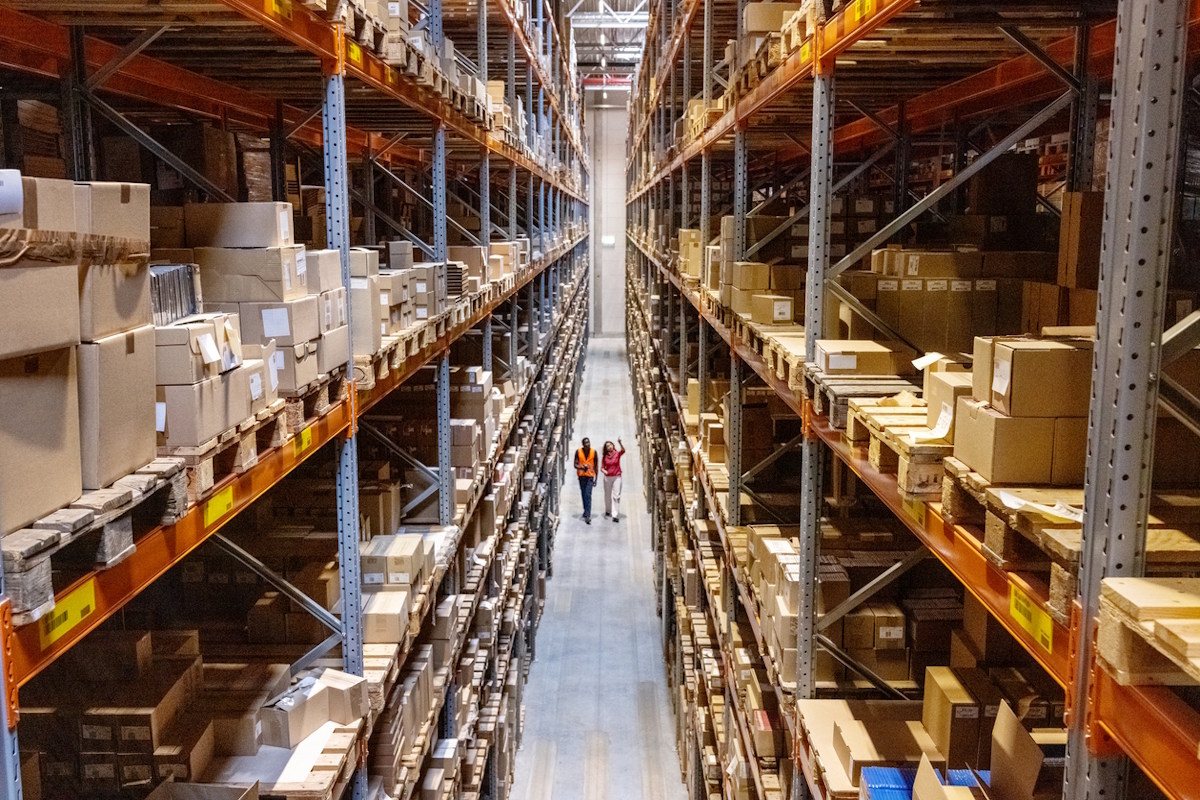The need for speed in supply chain management

Vishal Patel at Ivalua describes how to boost agility and resilience
Supply chain and procurement leaders are under more pressure than ever before: global conflicts, shifting trade policies, and continued disruptions have driven up costs, and pushed supply chain management strategies into a state of constant flux.
Now, with the new tariff chaos, these leaders and their suppliers are actually the ones feeling a large portion of the impact.
There has not been a tariff impact such as this in recent history, supply chains have operated in a fully global economy, where raw materials, parts, components, have flowed freely across borders, often multiple times. Much of this may have to change. Much of this requires a strong business relationship to endure through the chaos.
Sourcing, supplier management and development, and overall supply chain visibility just became a vital component of business strategy. A recent study shows only one-third of leaders have deep visibility into their supply chain vulnerabilities, as legacy processes and siloed operations hold them back. How many companies have active supplier development programs? How many have category strategists that can navigate through this?
Organisations that do not have these aspects in place and ready to deploy are now at a disadvantage. They risk facing higher costs, shortages, missed revenue opportunities, and overall disruption. In this environment, speed is the new currency.
But it’s not just about moving faster – it’s about optimising supply chain management, making informed decisions, and collaborating more closely with strategic suppliers. Organisations must take the following steps to successfully mitigate supply chain risks and improve agility.
Supplier collaboration: sync or swim
For many organisations, the core issue is legacy systems, poor supplier / supply chain data, fragmented supplier management processes, and a lack of focus on building stronger relationships.
These issues greatly impact the ability to identify bottlenecks and risks, in order to respond appropriately and early enough. Strong relationships enable collaboration and planning during difficult times. This reduces the impact on both buyer and supplier, making it possible to find solutions in the short term, while working on the long term plan. To overcome these inefficiencies, companies should embrace digitisation, allowing for a focus on strategy and supplier development.
This means ensuring that solutions are cloud-based, and can centralise data to streamline procurement, logistics, and supplier risk and performance in real time. This connectivity enables live updates, predictive alerts, and proactive planning across multiple functions and tiers, enhancing overall agility.
Intelligent virtual assistants enhanced by AI further strengthen visibility by reducing administrative burdens and improving coordination. Digitisation is more than just improving visibility - it drives velocity, ensuring that insights are quickly translated into action with minimal friction.
Accelerate resilience with real-time data
Many supply chains still suffer from a lack of end-to-end visibility, leaving them vulnerable due to over-reliance on single suppliers or distant sourcing models. If a critical supplier fails or experiences a shortage of critical goods or services, organisations can be left in the lurch and unable to serve their customers.
To address this risk, for the long term companies must diversify their supplier base, embrace reshoring and nearshoring, and implement agile sourcing strategies where possible.
By enabling real-time performance monitoring, streamlining onboarding, and ensuring better compliance tracking, organisations can create a real-time picture of their spend and suppliers and accurately assess their risk exposure and areas of over-reliance.
This solid data foundation will also allow organisations to onboard new suppliers quickly. On a day to day basis, this visibility will also help to shrink reaction times for risk-based decisions, so organisations can build resilience across their supply chain. After all, speed isn’t just about speeding up processes – an up-to-date picture of suppliers will allow organisations to pivot more quickly depending on the latest business priorities.
For example, Italian energy efficiency platform Renovit procurement recently digitised its supply chain management operations, streamlining supplier onboarding, improving tracking of purchase orders and invoices, and enabled data-driven decision making to drive greater efficiency, transparency, and sustainability.
Using AI to predict, plan, and prevail
To keep momentum across supply chain management, forward-thinking organisations are going beyond digitisation and embracing AI-powered solutions. Manual forecasting and slow planning cycles are no longer sufficient in today’s rapidly changing market.
To stay ahead, businesses must leverage AI-powered tools such as autonomous sourcing and supplier onboarding, risk and performance assessments, category strategies, contract negotiations and much more – all freeing up teams to focus on strategic initiatives.
These AI-driven solutions enable smarter, faster responses to market fluctuations and supply risks through dynamic inventory management, machine learning demand sensing, and predictive alerts. By harnessing AI, businesses can shift from relying on lagging indicators to taking proactive, data-driven actions, ensuring they can plan and adapt in real time.
Putting your best foot forward
The supply chain has become a race, not just against competitors, but against complexity, delay, and disruption. The winners will be those who can move faster, collaborate more closely, and make informed decisions with confidence.
Procurement and supply chain leaders who prioritise resilience, digitisation, and AI-driven agility will not only weather the next crisis but set the pace for their competitors.
With every quick decision, organisations can drive cost optimisation, innovation, and risk mitigation – giving organisations the speed they need to leverage emerging technologies and leave their competition behind.
Vishal Patel is VP of Product at Ivalua
Main image courtesy of iStockPhoto and alvarez

Business Reporter Team
Most Viewed
Winston House, 3rd Floor, Units 306-309, 2-4 Dollis Park, London, N3 1HF
23-29 Hendon Lane, London, N3 1RT
020 8349 4363
© 2025, Lyonsdown Limited. Business Reporter® is a registered trademark of Lyonsdown Ltd. VAT registration number: 830519543





